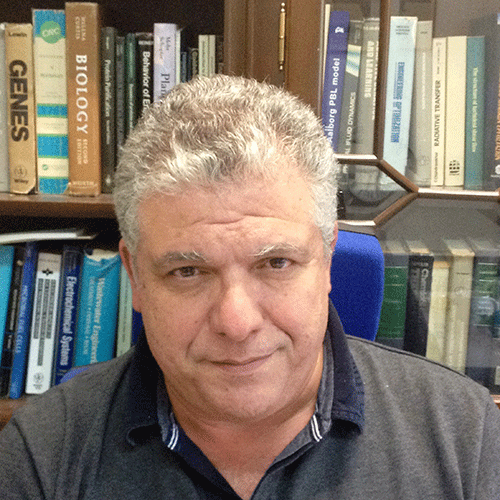
Gerasimos Lyberatos is currently professor in the School of Chemical Engineering, National Technical university of Athens and a collaborating faculty member of the Institute of Chemical Engineering and High Temperature Chemical Processes (Foundation of Research and Technology Hellas).
He obtained his B.S. at M.I.T. and his M.S. and Ph.D. at CALTECH (USA) and served as Assistant, and Associate Professor at the University of Florida. In 1990 he joined the University of Patras as an Associate Professor and in 1993 became a Full Professor. His research interests are in Biochemical Engineering and Environmental Technologies. He has over 185 publications in International refereed Journals, and over 300 participations in International Conferences, 9 Chapters in books and two books.
He has supervised 34 PhD theses and 36 M.S. theses. He has over 5250 citations and an h factor of 41. He has organized two International Conferences. Prof. Lyberatos is Editor of the Journal of Hazardous Materials (Elsevier) and Associate Editor of Waste and Biomass Valorization (Springer). Finally, professor Lyberatos is a city counselor for the Municipality of Halandri (one of the municipalities of the Athens Metropolitan area) and is in charge of recycling and municipal solid waste management strategy.
- Household food waste from 800 informed volunteer citizens is collected in biodegrable bags placed in locked bins
- The collected waste is dried and shredded to produce FORBI (food residue biomass) , which Is homogeneous, has 1/4 to 1/5 the weight of biowaste, implying reduced transportation costs, has low-moisture and may be stored for prolonged periods of time without deterioration and does not emit odors
- FORBI may be used for producing fuels, energy and other products such as compost, adsorbents and animal feed.